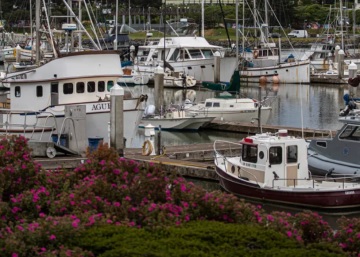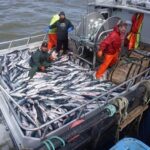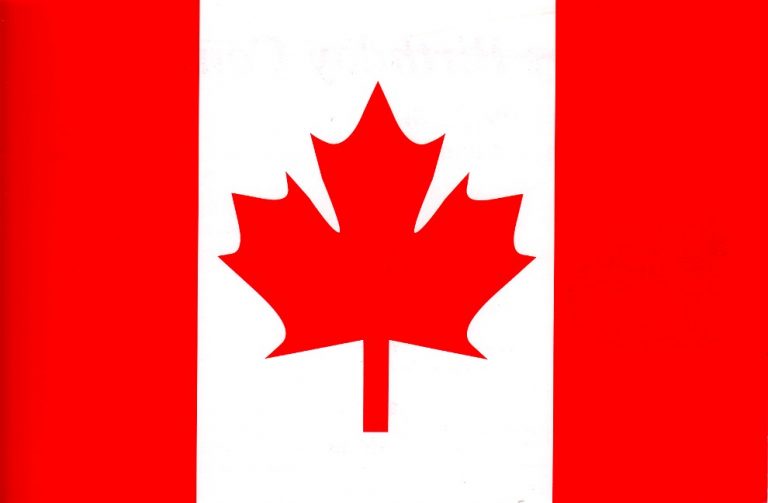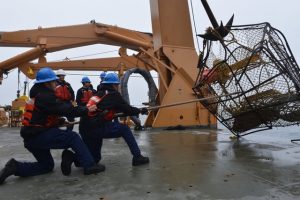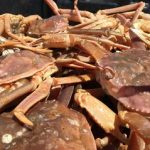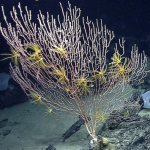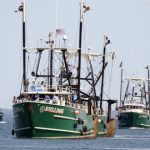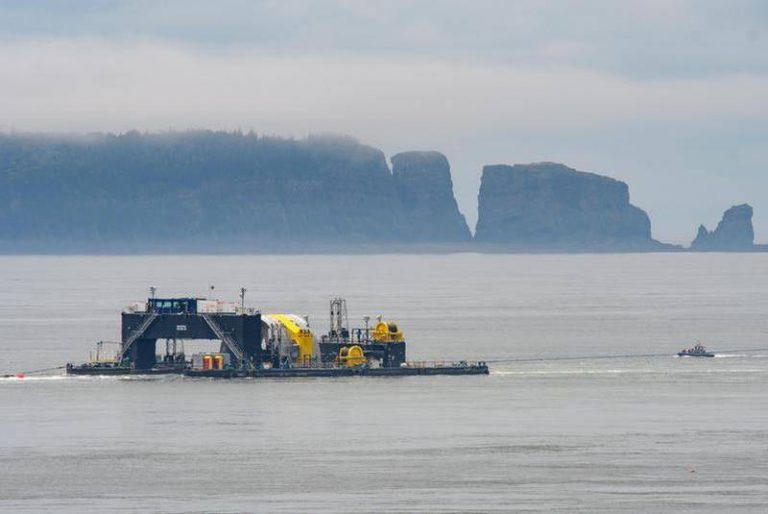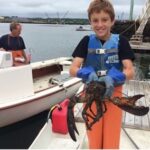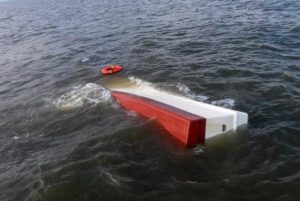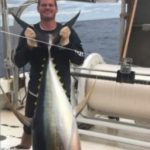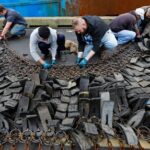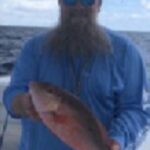A loose coalition of offshore wind opponents is forming from North Carolina to New England to the Great Lakes to question or challenge the expanding list of proposed projects. The Thomas Jefferson Institute for Public Policy has affiliated with the coalition, with our concerns over Dominion Energy Virginia’s proposed 5,280 megawatt project basically being economic. Massive worldwide economic forces are behind this push, most of them positioning the company to earn substantial profits from energy ratepayers. The Virginia State Corporation Commission, basically under orders from the General Assembly to approve the offshore wind proposed by Dominion, has estimated the all-in consumer cost of the Dominion project at more than $37 billion. It accounts for about a third of the $807 annual increase in residential electric bills the SCC has projected by 2030, with the power provided dependent on unreliable wind. >click to read< 11:55
Tag Archives: ocean industrialization
FISHERMEN OPPOSE INDUSTRIALISATION OF OUR OCEANS
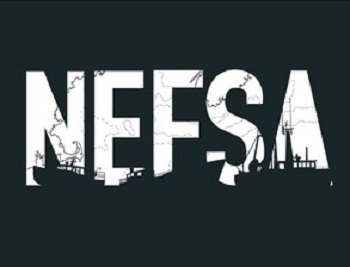 “The New England Fishermen’s Stewardship Association (NEFSA) remains steadfast in its opposition to the industrialisation of our oceans, despite the shrinking of the original proposed lease area. The final eight lease areas encompass a total of 827,886 acres in the Gulf of Maine and pose an existential threat to all marine species, habitat, and to the livelihoods of current and future generations of sustainable fishermen upon whom their communities rely on for survival. The six lase areas in the southern Gulf of Maine comprise a Great Wall of Windmills that threaten mariners and the marine environment. more, >>CLICK TO READ<< 06:33
“The New England Fishermen’s Stewardship Association (NEFSA) remains steadfast in its opposition to the industrialisation of our oceans, despite the shrinking of the original proposed lease area. The final eight lease areas encompass a total of 827,886 acres in the Gulf of Maine and pose an existential threat to all marine species, habitat, and to the livelihoods of current and future generations of sustainable fishermen upon whom their communities rely on for survival. The six lase areas in the southern Gulf of Maine comprise a Great Wall of Windmills that threaten mariners and the marine environment. more, >>CLICK TO READ<< 06:33Offshore wind energy development: A David vs Goliath story
 As the aggressive pursuit to privatize and industrialize our oceans with offshore wind turbine factories marches on, the small yet powerful voices of coastal communities around the nation continues to fight to be heard in the process. It is a veritable David versus Goliath story. Closer to home in Oregon, I believe that Goliath may be the elitists who live in urban settings like Portland and Salem who believe that they know best what the coastal residents of Oregon need. Oregon is not unique; however, this story is unfolding around the nation where urbanites believe they know best for rural communities that they do not live or work in. These people tout their desire to uplift marginalized voices while they steamroll rural voices, whether it is Tribes, coastal community members, or commercial fishermen. They attempt to downplay the concerns of coastal residents, claiming “we just don’t understand”. But here’s the thing. We actually do understand. more, >>CLICK TO READ<< By Heather Mann 15:57
As the aggressive pursuit to privatize and industrialize our oceans with offshore wind turbine factories marches on, the small yet powerful voices of coastal communities around the nation continues to fight to be heard in the process. It is a veritable David versus Goliath story. Closer to home in Oregon, I believe that Goliath may be the elitists who live in urban settings like Portland and Salem who believe that they know best what the coastal residents of Oregon need. Oregon is not unique; however, this story is unfolding around the nation where urbanites believe they know best for rural communities that they do not live or work in. These people tout their desire to uplift marginalized voices while they steamroll rural voices, whether it is Tribes, coastal community members, or commercial fishermen. They attempt to downplay the concerns of coastal residents, claiming “we just don’t understand”. But here’s the thing. We actually do understand. more, >>CLICK TO READ<< By Heather Mann 15:57
Protest Over High Risk Off-Shore Wind Farm Electric Cables Under New Jersey Neighborhoods
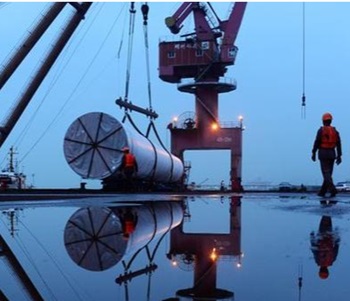 A significant community education meeting is scheduled for Monday, August 19, 2024, at 6:30 PM at the Manasquan Community Senior Center, located at 63 Atlantic Ave. The Atlantic Shores Offshore Wind Interconnection Cable Project plans to install 700-800 turbines capable of generating nearly 6,000 megawatts of power—significantly more than the now-closed Oyster Creek nuclear plant. These cables, potentially placed 3.5 to 8 feet underground near homes and schools, raise health and environmental concerns, particularly around the Sea Girt Beach landing area, which is home to protected birds and plants. more, >>CLICK TO READ<< 08:53
A significant community education meeting is scheduled for Monday, August 19, 2024, at 6:30 PM at the Manasquan Community Senior Center, located at 63 Atlantic Ave. The Atlantic Shores Offshore Wind Interconnection Cable Project plans to install 700-800 turbines capable of generating nearly 6,000 megawatts of power—significantly more than the now-closed Oyster Creek nuclear plant. These cables, potentially placed 3.5 to 8 feet underground near homes and schools, raise health and environmental concerns, particularly around the Sea Girt Beach landing area, which is home to protected birds and plants. more, >>CLICK TO READ<< 08:53
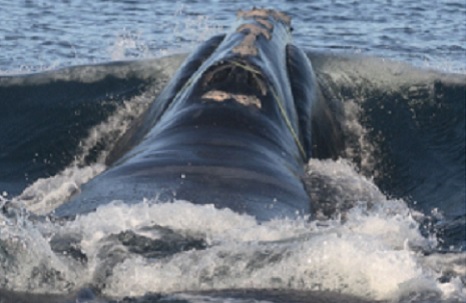
Massachusetts fishermen say feds are hypocritical in Gulf of Maine wind energy designation
A move to designate two million acres in the Gulf of Maine as a hub for wind energy is snagging a sharp hook from Massachusetts fishermen who say the development overlooks risks to the North Atlantic right whale. A handful of Bay State fishermen advocacy groups are teaming with counterparts from across New England in criticizing the Biden administration’s plans to industrialize the area off the coasts of Massachusetts, New Hampshire and Maine. Fishermen, however, say the industrialization of the two-million-acre area is “flatly inconsistent with a policy of endangered species protection.” “Fishermen are disheartened that the WEA designation favors foreign energy developers over marine mammal protection,” the Gulf of Maine Fishing Associations said in a statement last week. “This preferential treatment is in stark contrast to the federal government’s aggressive campaign to burden commercial fishing needlessly with crushing restrictions to protect whales.” more, >>click to read<< 08:43
Floating offshore wind experts say they want to coexist with Maine lobstermen, but lobstermen say no thanks
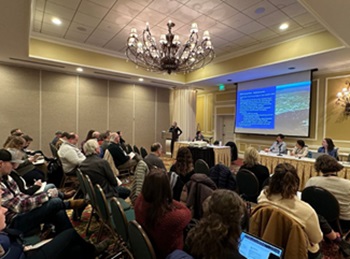 Lobstermen asked pointed questions Thursday about a planned offshore floating wind array that they fear will take away fishing grounds and potentially disrupt the species they rely on to make a living. “Offshore wind overall we have a lot of issues with,” Virginia Olsen, political director of the Maine Lobstering Union said. “We know it will be industrializing our ocean and as fishermen we just don’t want to see that happen.” During the Thursday presentation, state officials and consultants working on the floating array emphasized they want to work toward “coexistence” between the new technology and the fishing industry. But that didn’t sit well with some of the lobstermen, who said they don’t want to co-exist with the turbines. more, >>click to read<< 06:50
Lobstermen asked pointed questions Thursday about a planned offshore floating wind array that they fear will take away fishing grounds and potentially disrupt the species they rely on to make a living. “Offshore wind overall we have a lot of issues with,” Virginia Olsen, political director of the Maine Lobstering Union said. “We know it will be industrializing our ocean and as fishermen we just don’t want to see that happen.” During the Thursday presentation, state officials and consultants working on the floating array emphasized they want to work toward “coexistence” between the new technology and the fishing industry. But that didn’t sit well with some of the lobstermen, who said they don’t want to co-exist with the turbines. more, >>click to read<< 06:50
Offshore Wind Lease Areas Impede on Historic Fishing Grounds
 In announcing its decision Monday (the initial deadline for comment), BOEM said it received requests from tribal nations and stakeholders to provide more time to review and comment on the lengthy environmental document. The decision also came on the 40th anniversary of COA’s incorporation. “When we started in 1984, the ocean was the dumping capital of the world. We worked really hard to clean it up and in 2000 we ended ocean dumping. (That’s) the power of the people,” Cindy Zipf, COA executive director, said. Since then, the Atlantic Ocean has thrived, she added. “We’ve seen majestic animals and (the) bounty of what she (the ocean) provides (us) free,” Zipf said. “What’s the return now? There’s a bunch of people that want to industrialize the ocean to claim some green energy revolution, but the facts aren’t there. We don’t see them.” more, by Gina G. Scala, >>click to read<< 10:41
In announcing its decision Monday (the initial deadline for comment), BOEM said it received requests from tribal nations and stakeholders to provide more time to review and comment on the lengthy environmental document. The decision also came on the 40th anniversary of COA’s incorporation. “When we started in 1984, the ocean was the dumping capital of the world. We worked really hard to clean it up and in 2000 we ended ocean dumping. (That’s) the power of the people,” Cindy Zipf, COA executive director, said. Since then, the Atlantic Ocean has thrived, she added. “We’ve seen majestic animals and (the) bounty of what she (the ocean) provides (us) free,” Zipf said. “What’s the return now? There’s a bunch of people that want to industrialize the ocean to claim some green energy revolution, but the facts aren’t there. We don’t see them.” more, by Gina G. Scala, >>click to read<< 10:41
Study of seismic testing used in offshore oil, gas and wind energy industries finds lobsters ‘concussed’
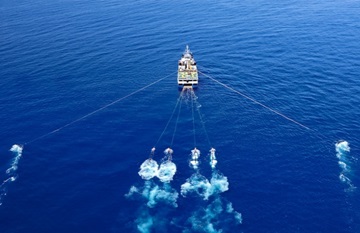 Seismic testing critical to Western Australia’s offshore oil, gas and energy industries is dazing, and potentially killing the state’s valuable western rock lobsters, a new study has found. The practice is essential to offshore oil and gas exploration and the construction of wind turbines, and involves firing powerful air guns, creating soundwaves that penetrate the ocean floor. But research by the WA government’s Department of Primary Industries and Regional Development has found lobsters exposed to the testing are significantly impacted. Offshore crustaceans scientist Simon de Lestang studied the behaviour of lobsters after they were exposed to seismic testing conducted offshore, in shallow water south of Geraldton. >>click to read<< 11:05
Seismic testing critical to Western Australia’s offshore oil, gas and energy industries is dazing, and potentially killing the state’s valuable western rock lobsters, a new study has found. The practice is essential to offshore oil and gas exploration and the construction of wind turbines, and involves firing powerful air guns, creating soundwaves that penetrate the ocean floor. But research by the WA government’s Department of Primary Industries and Regional Development has found lobsters exposed to the testing are significantly impacted. Offshore crustaceans scientist Simon de Lestang studied the behaviour of lobsters after they were exposed to seismic testing conducted offshore, in shallow water south of Geraldton. >>click to read<< 11:05
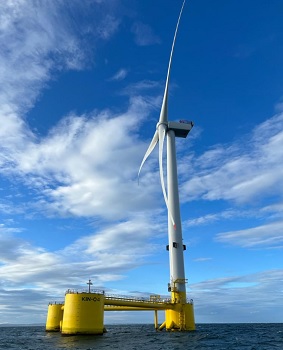
Leeman: Maine must hit pause on offshore wind turbines
You wouldn’t buy a house without an inspection, so why would we fill the Gulf of Maine with wind turbine superstructures without understanding how they interact with the marine environment? Offshore wind energy features too many unknowns to proceed at this point with widescale ocean industrialization. That’s why my organization, the New England Fishermen’s Stewardship Association (NEFSA) has joined with partner organizations to call on state and federal authorities to reset our renewable energy policy. The state of Maine is developing a floating offshore wind research array at a 15-square-mile site in the Gulf of Maine. >click to read< 08:17
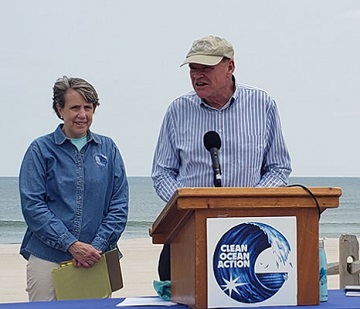
World Ocean Day Prompts Calls for Action
Calling themselves “Ocean Rebels for the COZ” members of Clean Ocean Action (COA), Mayor John Peterson, naturalist Trisha DeVoe and others came out to promote for the aquatic environment during World Ocean Day. Those present noted that after four decades of progress in ocean protection, new and old threats were being fast tracked that could impact the ocean of today. Peterson said he hoped to see “officials of all elected levels of government, up and down the Jersey shore” in joining COA  in making the public aware “of the threats to our ocean and what can happen if we become complacent. Lavallette resident Brick Wenzel spoke to Jersey Shore Online.com from the perspective of a commercial fisherman. “I am the fishing liaison for the Fishermen’s Dock Cooperative out of Point Pleasant Beach. I have been a licensed commercial fisherman since 1982. When you look at the industrialization of our ocean, the commercial fishing industry is the most heavily impacted blue water economy with the industrial build out.” Photos, >click to read< 12:51
in making the public aware “of the threats to our ocean and what can happen if we become complacent. Lavallette resident Brick Wenzel spoke to Jersey Shore Online.com from the perspective of a commercial fisherman. “I am the fishing liaison for the Fishermen’s Dock Cooperative out of Point Pleasant Beach. I have been a licensed commercial fisherman since 1982. When you look at the industrialization of our ocean, the commercial fishing industry is the most heavily impacted blue water economy with the industrial build out.” Photos, >click to read< 12:51
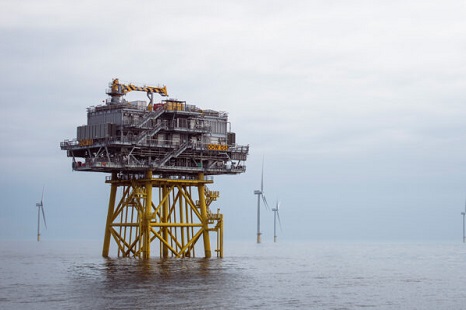
Offshore Wind Electrical Substations; The Secret, Silent Killers by Jim Lovgren
The marine mammal strandings that are taking place almost everyday along the US east coast are the most visible consequence of the Biden administration’s reckless disregard of all environmental safeguards that had been carefully crafted since the environmental movement started in the 1960’s. Embarrassingly, the cowards at the National Marine Fishery Service have stood by and watched as research vessels have been performing geologic surveys with high powered Sonar, and Seismic devises before they had their incidental take permits issued. They have also authorized over 100,000 level B takes of marine mammals, and that’s just for a few projects, as they fully expect the offshore wind factories to cause the extinction of the critically endangered Northern Right Whale. Just ask Sean Hayes, from the NMFS protected species department, whose observations were ignored by BOEM, hence an ESA violation. >click to read< 11:34

The Truth About Offshore Wind: Busting Oil Money Myths and Misinformation
The various organizations, news outlets, and elected representatives that have been promoting misinformation about offshore wind have two things in common: 1) conservative politics and 2) ties to the oil industry. Seemingly locally run nonprofits have been leading public anti-offshore wind campaigns, purportedly out of concern about the dangers offshore wind farms present to whales and local economies. Yet many of these same organizations have proven ties to major conservative lobbyist groups funded by “Big Oil.” Meanwhile, both local and congressional conservative politicians have jumped on these misinformation campaigns, especially in the Northeast, where the first offshore wind farms are set to be constructed this year. This is despite several state and national polls showing that Americans overwhelmingly support the construction of offshore wind farms. >click to read< 08:04
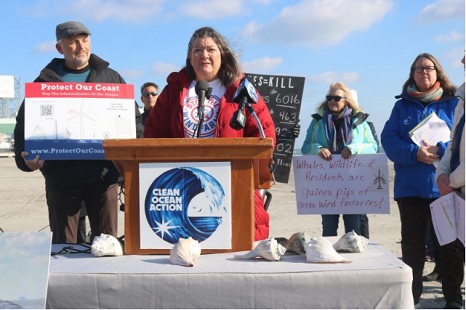
Wind Farm Opponents to Host Fundraiser For Legal Defense Fund
For nearly four years, opponents of a proposed offshore wind farm that they say could negatively affect marine life, tourism, the commercial fishing industry and wildlife have held protests and signed petitions calling for a halt to the project by Danish energy company, Orsted. Protect Our Coast NJ founder Suzanne Hornick, of Ocean City, said the time is now to stop offshore wind farm projects to protect the environment. “Protect Our Coast NJ is fighting to protect our coastal community and our ocean from the extreme industrialization currently planned for our shores,” Hornick said. “We know that the proposed projects which could see thousands of gigantic turbines and substations off our coast will destroy our community, quality of life, economy, ecosystem, food supply, national security, and more.” >click to read< 07:55
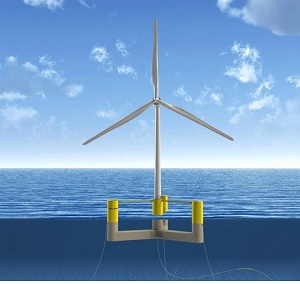
Old lumber port preps for new life as California offshore wind hub
Eureka’s halcyon days as the “timber capital” of California are long gone, but the deepwater port city 270 miles north of San Francisco may see its fortunes turn as the hub of the state’s first foray in offshore wind energy. Eureka sits across two of the five swaths of Pacific Ocean along the California coast that the federal government auctioned off to offshore wind developers this past December for a total of $757 million. The three other leases are on the Central Coast across from Morro Bay. Humboldt Bay, the second-largest bay in California after the San Francisco Bay, is ideally suited to become the final assembly port for the massive turbines. >click to read< 15:43
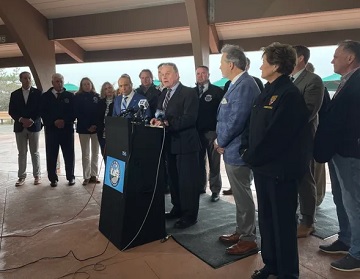
‘Tell us why’: Monmouth Commissioners call for investigation into surge of whale deaths
Monmouth County officials stood in the mist at Seven Presidents Oceanfront Park on Wednesday, where they gathered to call for an immediate stop to offshore wind energy work off New Jersey’s coast. Their announcement marked a new addition to a growing group of elected officials who are demanding answers on recent deaths among whales and dolphins across the region, and who allege offshore wind survey work is the cause. As of Wednesday afternoon, 10 whale deaths had been recorded along the Jersey Shore since Dec. 1. In addition, two separate pods of dolphins had stranded since early February on New Jersey beaches. Another three individual dead dolphins and one porpoise had washed ashore in separate strandings. >click to read< 16:47
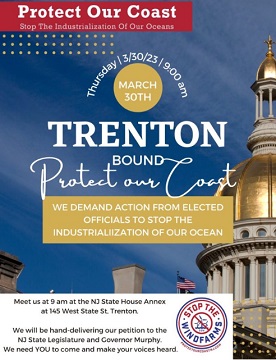
Offshore Wind Farm Opponents to Rally in Trenton on Thursday
Protect Our Coast NJ, a coalition of groups opposed to offshore wind farms, will hold a rally Thursday at the Trenton State House Annex to demand that Gov. Phil Murphy stop the projects until the cause of a surge in whale deaths is determined. Keith Moore, of Defend Brigantine Beach, another coastal group, said wind farm opponents will deliver an online petition, signed by nearly 500,000 people, calling for the immediate halt of wind farm development. The rally is scheduled at 9 a.m. Numerous advocacy groups, some formed to address what they call the “transformative industrialization” of the ocean, have been speaking out against the construction of offshore wind energy farms. >click to read< 13:30
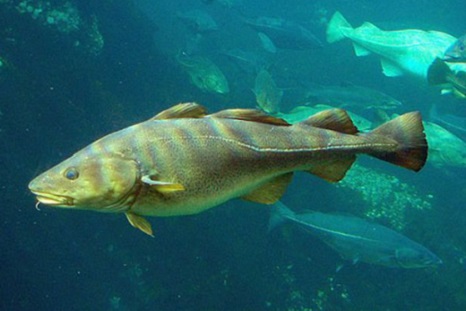
Ocean Industrialization: Fishing regulators fear wind turbines could threaten spawning area for Atlantic cod
It is the largest offshore HAPC designation in the region. Yet a main concern is cod spawning grounds in a smaller region within the designation, just east of Block Island. That area, known as Cox Ledge, overlaps with some 250 square miles currently leased to developers Ørsted and Eversource for their joint wind energy project: South Fork Wind. It is one of only two offshore wind projects that have completed the federal permitting process. “We are really going about the wind farm development very quickly,” said Kevin Stokesbury, a fisheries science professor at UMass Dartmouth, who studies cod in the Gulf of Maine. “It’s going to be quite a dramatic change to the ecosystem out there.” “We’ve all made sacrifices so cod can recover,” said Capt. Tim Rider, who fishes for groundfish and scallops. “Now they’re going to put a wind farm there,” he said of the cod spawning grounds. “How about they put it somewhere that might not be as intrusive.” >click to read< 11:05
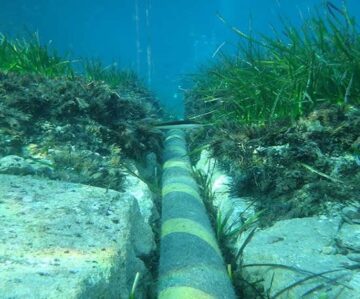
Lobsters Develop Malformations in The Presence of Submarine Power Cables
A European study recently revealed an example proving that submarine power cables can have undesirable consequences on marine animal species. The work focuses on lobster, some specimens of which may indeed present malformations. With the help of other European researchers, a laboratory at the St Abbs marine station (United Kingdom) carried out a very telling experiment. The scientists exposed no less than 4,000 lobster eggs to a level of electromagnetic field similar to those usually present near undersea cables. At the same time, they observed the development of another group of unexposed eggs. According to the results, lobsters exposed to the waves are three times more likely to suffer from malformations. >click to read< 12:26
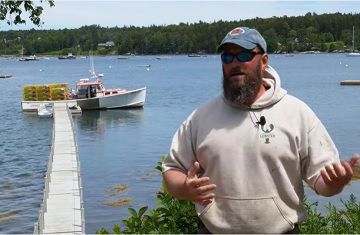
Save the Gulf of Maine –The Maine Reset, Ep6: Small Fish in a Big Sea
Sedgwick, ME Lobsterman Brian Tripp shares his story, what he loves about lobstering & what he is most concerned about for the future. MLA’s Patrice McCarron talks about the legal fight to protect Maine’s fishing heritage. >click to watch the video< – This Vimeo video, Like Skyrocketing Electric Bills? Then You’ll LOVE Offshore Wind! is Ep: 5, which wasn’t allowed on You Tube, >Click to watch<. It’s a rigged game, and we are the pawns. To see all the videos in this series, >click here< 10:52
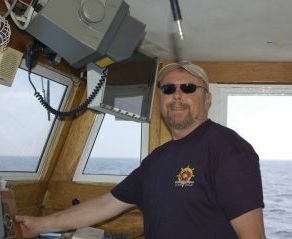
Who is the real Saudi Arabia of Wind? By David Goethel
I read the February 16th article by Teddy Rosenbluth, “New Hampshire is blowing its chance at offshore wind”, from the Concord Monitor, with interest and wished to offer some comment, both to the media covering New Hampshire, and the readers. By way of introduction, I am a research biologist and 54-year fisherman, both recreational and commercial, in the Gulf of Maine. First, I want to publicly thank both Governor Sununu and his energy spokesman, Assistant Commissioner of NH Dept. of Environmental Services, Mark Sanborn for taking a wise stand on collecting biological, ecological, economic and social implications of offshore wind development before leasing vast tracts of the Gulf of Maine. This stand is in marked contrast to other coastal governors and the Biden Administration, as well as European states, which have adopted a stance of build first and study later. >click to read< 20:18
Repeating the agenda “talking points”: Advocates say NH is blowing its chance at offshore wind – The Gulf of Maine, an area with strong and reliably blowing winds, is what Sen. David Watters called the “Saudi Arabia of wind.” >click to read<
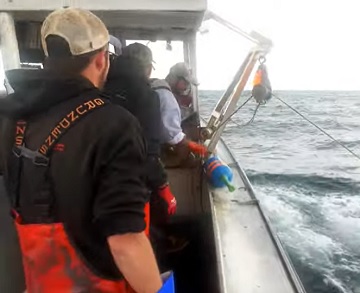
Save the Gulf of Maine – The Maine Reset, Ep. 4: Never Forgotten
Derek Colbeth grew up lobstering, and then served for 5 years in the US Marine Corps. Now he’s a civilian again, but his heritage and livelihood is under attack on all fronts. Powerful interests are converging in a war against Maine Lobstermen. If Lobstermen lose this fight, Maine will never be the same. >Video, click to watch< 14:35
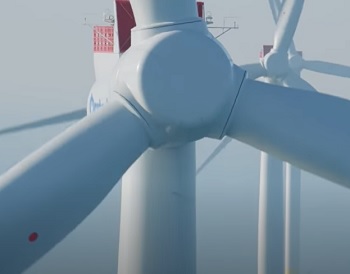
Save the Gulf of Maine – The Maine Reset, Ep.3: This is an Experiment
In this episode, interviews with two brilliant people that you won’t want to miss regarding offshore wind development in Maine. Carla Guenther PhD brings an oceanography perspective, and Long Island Commercial Fisherman Steve Train lays out some practical wisdom as only a fisherman can. Sandwiched in there are some of my own antics lampooning the empty suits from corporations who want to confiscate our ocean., >Video, click to watch< 13:15 ocean industrialization

ACK Residents Against Turbines not aligned with fossil fuel money
The Jan. 21 article by Doug Fraser, “Nuclear and Fossil Fuel Advocates, Wind Foes Among Backers of Right Whale Protection Suits,” misleads the public by attempting to draw a false link between ACK Residents Against Turbines, which opposes development of industrial-scale wind farms off the coast of New England, and other groups associated with the fossil fuel industry. Some groups oppose industrial offshore wind development because it will harm pristine ocean views enjoyed by all; others are opposed to the dramatic increase in electric rates experienced by countries that have adopted it or to the devastating impact it will have on commercial fishing. These are all valid concerns. ACK Residents Against Turbines is opposed to the industrialization of our ocean because the turbines, massive offshore substations, and vast undersea high voltage cable systems will damage the fragile marine ecosystem. >click to read< 15:12 By Vallorie Oliver President, Nantucket Residents Against Turbines
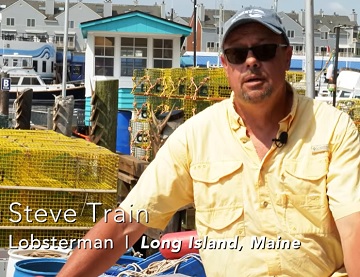
Video: Road to Disaster – Voices of Maine Lobstermen
In the first installment of this series, we get a bird’s-eye view of the current status of Maine’s lobster fishery, which is under assault on two fronts. In this episode, we only hear from lobstermen and their advocates. (If you want to hear more of the opposing views of wind lobbyists, just read any given corporate media outlet’s coverage of this subject.) Upcoming episodes will bring in additional perspectives…there are a total of 20 different interviews that I conducted in 2021, so you will not want to miss these. Video by Jason Joyce >click to watch< 17:07
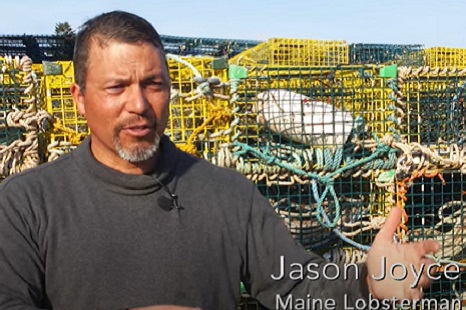
Video: Save the Gulf of Maine – The Maine Reset
Upcoming documentary scrutinizes plans to industrialize the Gulf of Maine and highlights the perspectives of the Mainers most affected. At the foreground of the conversation are Maine lobstermen. In later episodes, scientists and ecologists also weigh in. The result is a thought-provoking primer on an issue that could result in the fundamental transformation of the State of Maine. >click to watch<, 17:36 It’s only the beginning! You can support this project at www.igg.me/at/ProtectMaineWaters – Please, also watch the first video installment of >Road to Disaster – Voices of Maine Lobstermen, click here<

Fishermen, residents voice concerns about proposed Morro Bay offshore wind farm
An area of ocean 20 miles from the Cambria shoreline and about 35 miles northeast of Morro Bay could become home to nearly 400 square miles of wind turbines,,, Many, like Cheri Hafer, are concerned the area will prohibit commercial fishing. “One of our biggest enemies right now is industrialization of the ocean,” Hafer said. “Not just to fishermen, but to the marine habitat.” Larry Thevik, a dungeness crab fisherman, said many fishermen feel like their concerns aren’t being heard and that the impact it may have on the commercial fishing industry isn’t being thoroughly considered. >click to read< Public critical of environmental analysis for Morro Bay Wind Energy Area – A number of public speakers at an offshore wind energy impact analysis scoping meeting said a full environmental impact statement should be prepared before the federal government leases tracts in an area northwest of Morro Bay. But officials with the Bureau of Ocean Energy Management said a full EIS can’t be conducted on the effects of wind turbine installation,,, >click to read< 12:12

Offshore windfarms – some of the important actors
While I might have missed some of it, I haven’t seen much discussion of “who’s on first” vis-à-vis offshore windfarm development. Considering this, and considering that their development and the development of other controversial (at least to “historical” users of our nearshore and offshore waters) has the potential to severely impact or perhaps destroy, destroy the domestic commercial fishing industry starting in the mid-Atlantic/New England, I thought it might be instructive to examine some of the corporations who are interested in/committed to this INDUSTRIALIZATION of the ocean areas waters that have fed so many of our citizens and provided onshore and offshore employment for fishing communities since pre-revolutionary times. By Nils Stolpe /FishNet USA >click to read< 19:15

Opposition Forms from N.C. to N.E. to Great Lakes over ocean industrial development all-in consumer cost
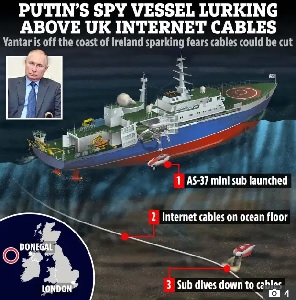
Russian spy ship armed with stealth cable cutter subs spotted lurking over UK internet cables
The vessel was above at least one commercial sub-sea cable and was seen zig-zagging through seas north of Mayo and Donegal in an apparent search for more. It then moved to the west of Killybegs fishing harbour before scuttling off into the Atlantic. Ireland’s Defence Force and NATO are on alert and monitoring the situation, The subs are carried beneath an enormous “mothership” undersea vessel and are built to lurk at the bottom of the ocean – entering the Atlantic by sailing down from the Arctic. International Offshore Infrastructure Warfare? >click to read< 20:07






